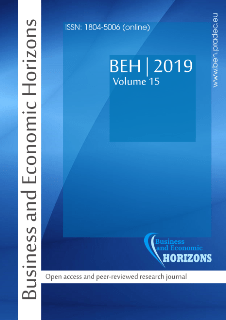The new Keynesian trade-off between output and inflation: Time series based evidence from Russia
The new Keynesian trade-off between output and inflation: Time series based evidence from Russia
Author(s): Chin-Hong Puah, Chong-Yang Sim, Mui-Yin Chin, M.Affendy AripSubject(s): Economy, National Economy
Published by: Prague Development Center
Keywords: Output-inflation trade-off; new Keynesian; new classical; nominal rigidity
Summary/Abstract: As oil exports remain the main source of income for the Russian economy, the ongoing plunging of global oil prices is causing severe adverse supply shock and cost-push inflation in the country. The recent attempts at stabilisation policies by the policymakers have not been very successful in stabilising both national output and inflation. This has brought about concern over the relevance of policymaker interventions in the Russian economy. We investigate this matter by applying Asai’s (1999) model. Our empirical results indicated that the trade-off between output and inflation in the short run in Russia is inversely associated with the mean rate of inflation, which supports the new Keynesian view. As such, stabilisation policies, particularly monetary policies adopted by policymakers, are extremely crucial in moderating the short-run trade-off between output and inflation with respect to the recent financial crisis.
Journal: Business and Economic Horizons
- Issue Year: 15/2019
- Issue No: 1
- Page Range: 126-136
- Page Count: 11
- Language: English

